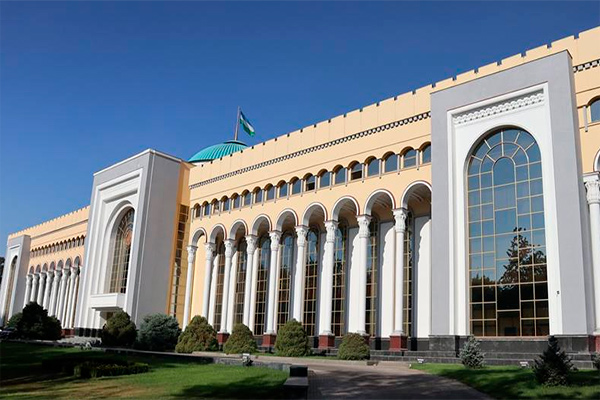
MFA: Uzbekistan is committed to enhancing bilateral and interregional dialogue with the EU
Tashkent, Uzbekistan (UzDaily.com) -- On 15 May 2019, the Commission of the European Union presented a draft of an updated Strategy for Central Asia, which must be approved by the EU Council in mid-June of this year.
The document emphasizes that the strategic location of Central Asia at the crossroads of Europe and Asia, its share in energy exports to Europe and its market potential with 70 million people, as well as EU interests in ensuring regional security have made Central Asia an increasingly important partner of Europe.
In Uzbekistan’s opinion, this is a recognition of the effectiveness of the regional efforts being made in the region, as well as the firm commitment of the republic’s leadership in creating a new atmosphere of cooperation in Central Asia, which allows building equal and mutually beneficial relations with leading international players and global partners.
In particular, an objective assessment in the document of the need to adopt a new Strategy is due to the new opportunities that have emerged to further strengthen the partnership between the European Union and Central Asia.
Among these opportunities are ongoing political and economic reforms, the intensification of regional cooperation, the development of transport and communication links with other regions, the expansion of cooperation between the EU and Central Asian countries in the Afghan sector.
As you know, most of these key points are among the priorities of the foreign policy agenda put forward by President of Uzbekistan Shavkat Mirziyoyev. As part of measures to build equal and mutually beneficial relations, the Uzbek side recognizes the important role of the EU as a leading donor and interested partner in the reform process and economic transformations being implemented today in Uzbekistan and in the region as a whole.
The dynamics of cooperation between Tashkent and Brussels confirms the assessment of the fact that the EU is an active supporter of the integration of Central Asian states into the world trading system, a source of investment and advanced technologies and a supporter of enhancing regional cooperation in our region and interregional cooperation in the format of "Central Asia - European Union".
Special attention in the document deserves the fact that the interaction of the EU with the countries of Central Asia will not exclude the possibility of cooperation of these states with third countries or within the framework of other mechanisms and international structures.
It is noteworthy that the document was drawn up taking into account the previously adopted conceptual foreign policy doctrines of the European Union, including the Global Strategy on Foreign and Security Policy, the New European Consensus on Development, the Strategy on the Interface of Europe and Asia, the Strategy on Afghanistan, and The UN Agenda for Sustainable Development until 2030, of which the Republic of Uzbekistan is a full participant.
It is noteworthy that the proposed new EU Strategy will focus on three interrelated and mutually complementary priorities:
- “Partnership for Sustainability”, which will focus on strengthening statehood, and implementing social and political reforms, including in the areas of security, democratization, human rights and the rule of law, ecology and migration.
- The Partnership for Prosperity will focus on promoting economic reform. The Uzbek side welcomes the EU to confirm its interest in supporting the transformation of Central Asia into a diversified and competitive economy with a predominance of the private sector that can create jobs, integrate into regional and global value chains and provide equal conditions and opportunities for all economic operators.
- In the third direction, entitled “Better to work together,” key attention will be paid to strengthening institutional mechanisms for interaction between the EU and the countries of Central Asia. In particular, it is proposed to strengthen the “cooperation architecture”, including through the signing of agreements on extended partnership and cooperation. At present, the Republic of Uzbekistan and the European Union have held the first round of negotiations on a new agreement, which should bring bilateral relations to a qualitatively higher level.
In general, it should be confirmed that, in accordance with the adopted “Action Strategy for the Five Priority Directions of the Development of the Republic of Uzbekistan in 2017–2021,” the Uzbek side is committed to enhancing bilateral and interregional dialogue with the EU at all levels.
The Uzbek side welcomes the new Strategy, which should become the defining document of the policy of the European Union and its member countries in relation to the states of Central Asia and the region as a whole for the future.